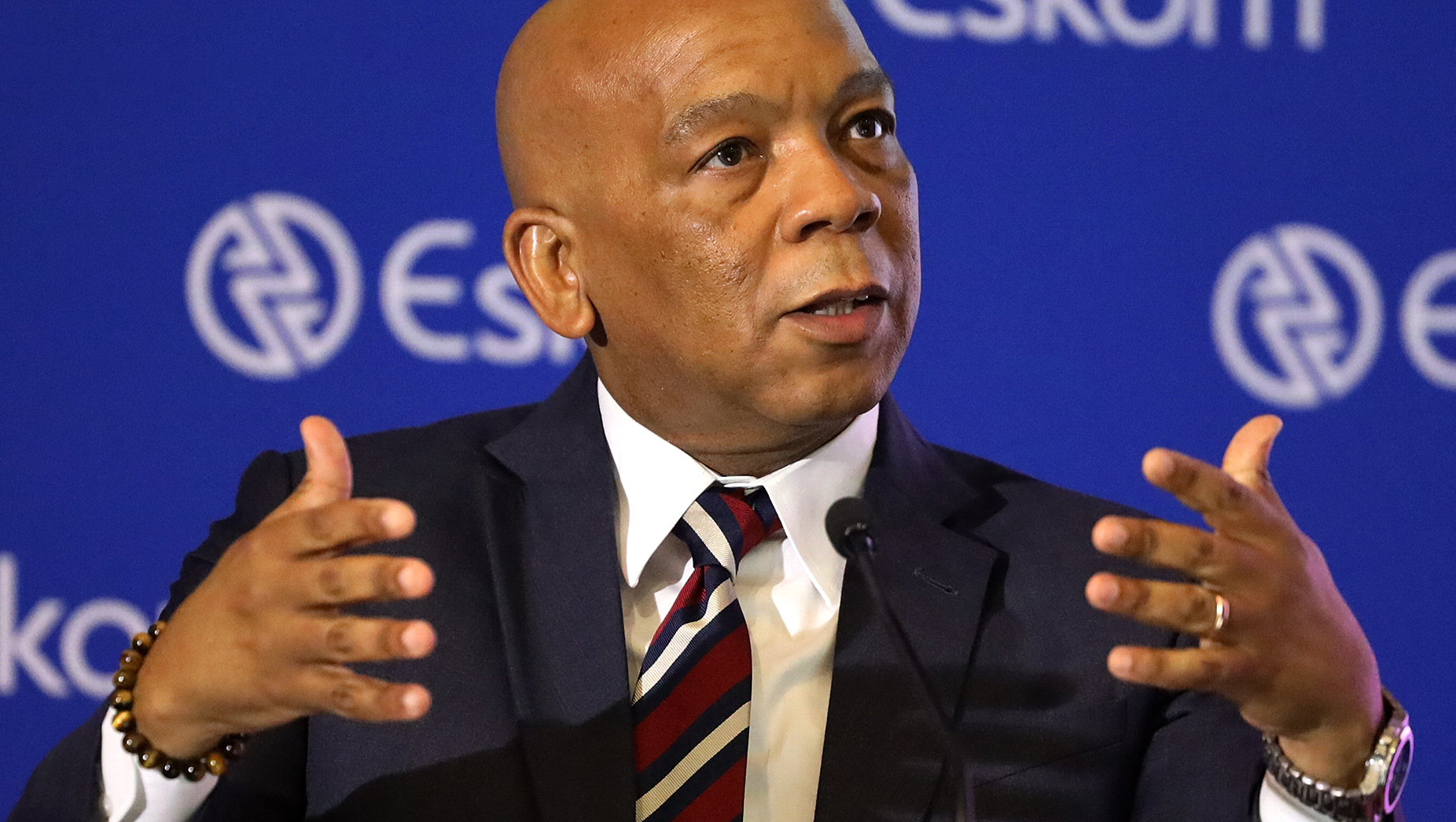‘Something must give - it’s not possible that we have this many failures and it’s normal,” said Minister of Electricity and Energy Kgosientsho Ramokgopa during a media conference on the status of SA’s electricity generation performance on Saturday, 8 March, following the implementation of Stage 3 rolling blackouts over the weekend.
“That’s the management responsibility. But I have a duty. I will not sit back and watch. Uh-uh, something must give. There are consequences.”
The rolling blackouts, implemented at 2pm on Friday, 7 March, and set to be lifted 5am on Monday morning (10 March), come after after 2,700 megawatts (MW) of generation capacity was lost this week, marking the third bought of collapse in 30 days, with Eskom scrambling to restore 6,200MW by Monday.
Read more: Eskom announces weekend rolling blackouts to replenish emergency diesel reserves as units go offline
Ramokgopa apologised for the “gross inconvenience” of load shedding, calling the recent power cuts a “significant setback” that risks eroding public confidence and South Africa’s economy.
Contributing factors included an outage of Unit 2 at Koeberg nuclear plant in the Western Cape and operational disruptions at two units at Kusile coal plant in Mpumalanga, due to adverse weather conditions.
Eskom CEO Dan Marokane said the unplanned capability loss factor (unexpected losses) rose from around 15,000MW in the middle of the week to up to 18,000MW yesterday, which triggered Stage 3 load shedding.
Marokane explained that when Eskom stays below 13,000MW of unplanned capacity losses, “we should have a comfortable summer”.
“This is a third setback in a period of about 30 days; it’s totally unacceptable,” said Ramokgopa. “Unacceptable, because we’re on a good run,” added Ramokgopa, explaining that before these recent bouts of load shedding, they were sitting between 8,500MW and 11,000MW unplanned losses, and now we are breaching 14,000MW.
“So, it’s an illustration of something that has gone wrong,” said Ramokgopa.
Since the setbacks yesterday, Marokane reported that 3,200MW had been restored by Saturday, with an additional 750MW expected by Sunday, and Koeberg Unit 2 scheduled to return on Monday.
 Eskom CEO Dan Marokane. (Photo: Gallo Images / Sharon Seretlo)
Eskom CEO Dan Marokane. (Photo: Gallo Images / Sharon Seretlo)
Slip-ups
Marokane emphasised that Eskom remains on track with its summer maintenance programme, which is expected to taper off as winter approaches at the end of March and into April.
However, this week saw further strain on the grid, as heavy rains affected Kusile, and ongoing issues at Koeberg were compounded by an additional delay of 1,000MW to 1,500MW in returning capacity due to missed maintenance deadlines.
“What we have seen in the last week - which is essentially trying to explain what transpired and led to the events of yesterday - is that whilst we had done the maintenance, a number of units slipped in terms of their due dates for returning from the outages,” said Marokane.
“And when that happens, and you have a combination of big units that have challenges [Koeberg and Kusile] … you have no room to respond.”
Winter outlook and new capacity
Marokane said Eskom plans to scale down aggressive maintenance by April, coinciding with the synchronisation of Kusile Unit 6 (800MW) on 18 March. Medupi Unit 4 is also expected to return to service soon, bolstering winter reserves. A detailed winter plan will be released in late March.
“We should be eradicating a lot of those slippages and having much more availability of our fleet,” said Marokane.
Accountability and leadership
Terence Creamer from Engineering News noted a distinct shift in tone from both the shareholder minister and the Eskom board regarding executive performance.
Ramokgopa agreed: “Yes, your observations are absolutely correct.”
He reaffirmed the Cabinet’s confidence in the Eskom board, led by Mteto Nyathi, and Eskom’s CEO, Dan Marokane. However, he acknowledged the scale of recent failures and said he would be going to “ground zero” - visiting Kendal, Matimba, Lethabo, Camden, Kusile and Koeberg plants, and speaking to managers and employees - to find out what’s going on, as well as to boost morale.
“So, clearly there’s been areas of failure, and those areas require that we have an honest conversation,” said Ramokgopa.
“I think, as a minister, I have a duty and obligation, because ultimately I’m the one who must communicate to the country on what are the sets of interventions that we are taking.”
Chris Yellend, energy analyst and MD of EE Business Intelligence, noted that “the Minister seems to be suggesting that the problems and load shedding experienced were not just technical issues, or financial constraints, or weather issues - but rather people-performance related”.
Nyathi emphasised that business as usual is no longer an option.
“When we first joined this board in 2022, we were in crisis. And, at that time, we made a decision that we would be an engaged board, working alongside management to address challenges,” said Nyathi.
“The board’s responsibility is to provide oversight and ensure accountability.”
Nyathi highlighted the role of the Business Operation Performance Committee, made up of engineers and accountants, in identifying Eskom’s systemic issues.
“It is the committee that is going to be helping us to look at all of these incidents, and start to look at the patterns and get to the root of what are the systemic issues that we are facing right now.”
He added that “those systemic issues will typically be in the areas of process, of systems and, most importantly, around people”. DM




 Eskom CEO Dan Marokane. (Photo: Gallo Images / Sharon Seretlo)
Eskom CEO Dan Marokane. (Photo: Gallo Images / Sharon Seretlo) 